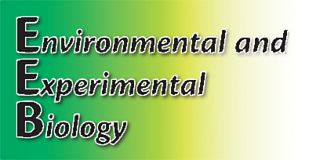
On-line: ISSN 2255–9582

| Faculty of Biology, University of Latvia | ||||||

|
Hard copy: ISSN 1691–8088
On-line: ISSN 2255–9582 Acta Univ Latv (2008) 745: 115–130
|
|||||

|
About the Journal | Retractions | Open Access | Author Guidlines | Current Issue | Archive |
|
Environmental and Experimental Biology |
Acta Univ Latv (2008) 745: 115–130 |
Since no highly efficient treatment for the hepatitis caused by hepatitis C virus (HCV) is available yet, the development of an anti-HCV vaccine candidate remains a goal of high priority. In our study, two different alphaviral expression systems were applied for expression of HCV structural protein genes in cell culture. For this purpose, the HCV genome fragment encoding the core-E1-E2-p7 polyprotein, and HCV core and E2 genes, separately, were cloned in Semliki Forest virus (pSFV1) and Sindbis virus (pCytTS) expression vectors. Efficient synthesis of structural HCV proteins in a BHK-21 cell line was demonstrated. HCV polyprotein precursor was authentically posttranslationally processed. Identification of HCV proteins was confirmed by immunoprecipitation, immunocytochemical analysis, and by Western blotting with corresponding anti-HCV antibodies.